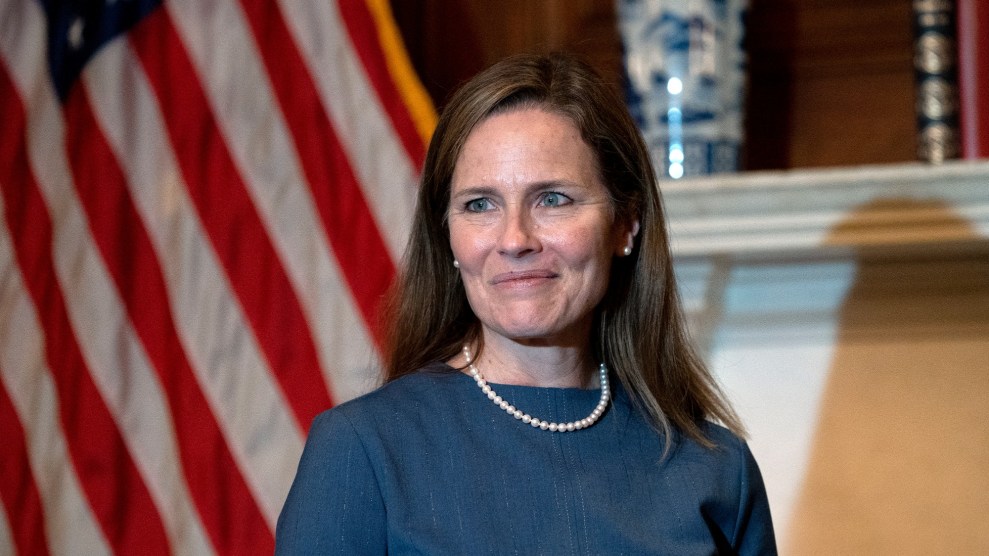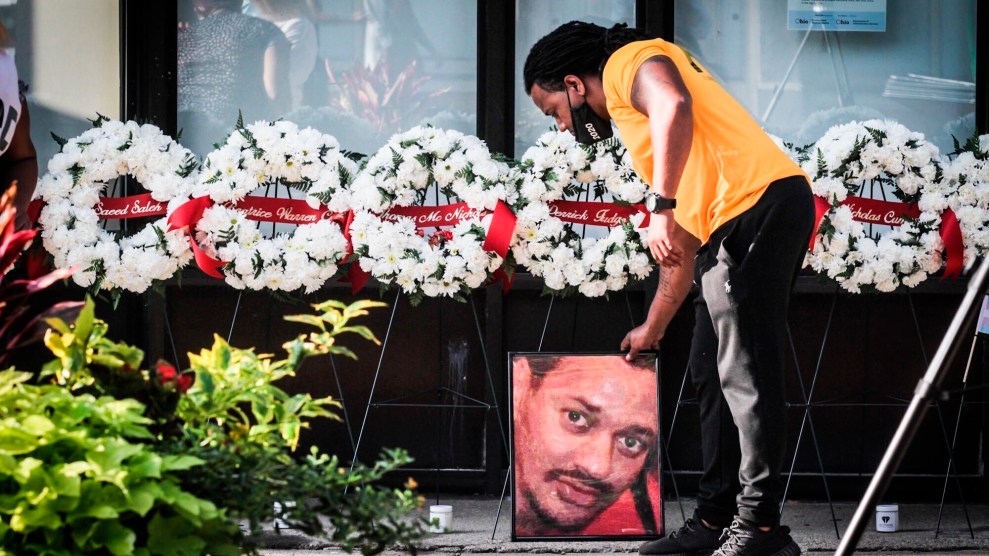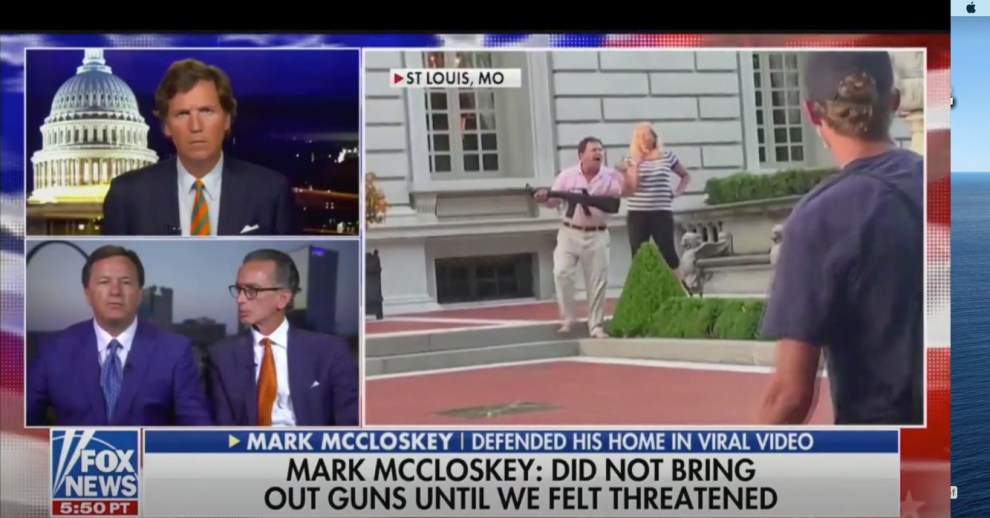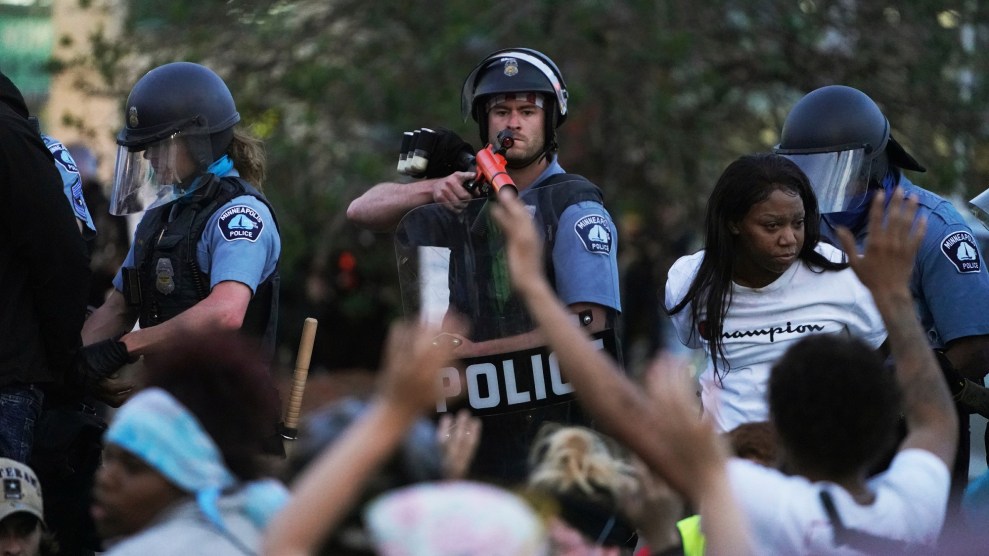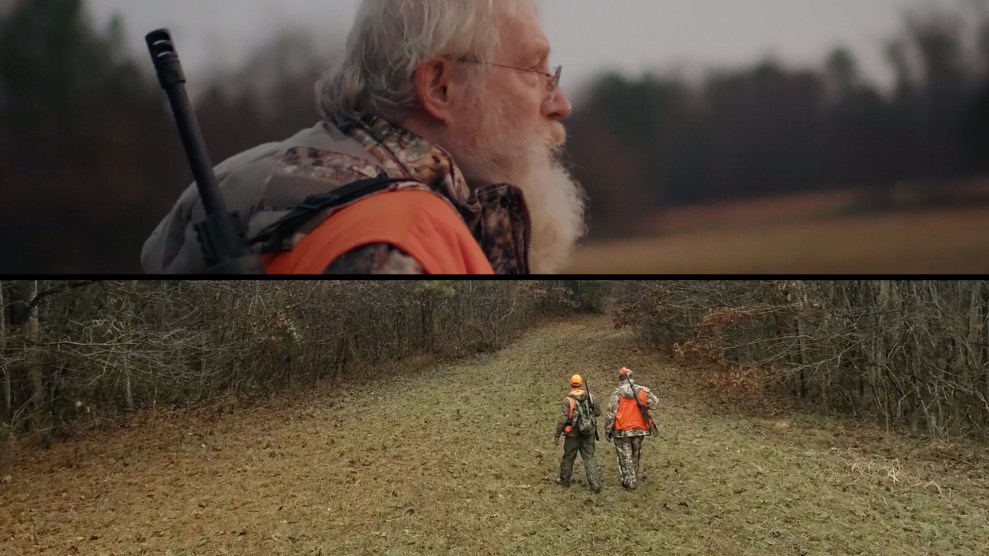
/Chicken & Egg Pictures
This week’s presidential debate may be canceled, but debates are still roiling around kitchen tables, on social media, and in family iMessage groups. It’s 2020 and opportunities for a fight are everywhere: Maybe you’re having a hard time convincing your parents to take masks seriously; or you and that cousin who is deep into conspiracy theories spread on YouTube are battling on Facebook about the election; or your partner or spouse is being a bit nutty about quarantine restrictions—too rigid or too relaxed.
As it turns out, often the most meaningful disagreements happen with the people you love the most, about the things you care the most about. Today, Mother Jones is publishing One Shot One Kill, a documentary film that follows a father and two of his sons as they embark on a deer hunting trip in rural Tennessee, a deeply held family tradition that connects the Neal family to the beauty of the land, the tradition of hunting, and what it means to be both a hunter and gun owner in the United States in 2020. When a mid-hunt conversation between the men—66-year-old patriarch John, and sons Fisher, 36, and Tyler, 33—turns to the Second Amendment, the trip becomes an opportunity for Peabody-nominated filmmaker Nancy Schwartzman to train her lens on how one of America’s most fraught cultural battles, gun control, plays out in a single family. Watch the film above.
“In almost all situations, hunting with the semi-automatic is not necessary,” Tyler Neal says in the film, as the family huddles and chats around a fire in their camo hunting gear. Fisher, an NYC-based outdoor guide and professional actor, ponders the accessibility of ArmaLite Rifles (ARs): “I don’t think we need to ban them but we should at least make it more rigorous of a process to get one.”
In recent years, mass shootings with high-powered weapons have ignited the March for Our Lives movement, while prominent deaths of Black Americans at the hands of police or vigilantes have sparked a national reckoning over racial violence, and the role of lethal force, including guns, in policing. Hunting has always been part of the gun control conversation in America, but how have these recent events shaped the political decisions of those who see unfettered access to guns as essential to their sport, even as they also recognize its deadly costs?
But for John, a lawyer, his son’s argument could be the first step onto a slippery slope. “I’m not convinced that we’ve ever agreed on anything!” John says. “The Constitution doesn’t say, ‘You have the right to keep and bear arms if you’ve taken the safety class.”‘
Even so, Tyler replies, “I feel like we could all agree on universal background checks,” which is calls a minor inconvenience to serve a “noble cause.”
By capturing this intimate, cross-generational conversation, One Shot One Kill, produced by Chicken & Egg Pictures, portrays some of the nuance that can get lost in the national debate, as the men discuss which restrictions they support, and which bring them into conflict with their identities as sportsmen, environmental stewards, and with each other.
Publishing Schwartzman’s documentary also provided an opportunity for the Mother Jones Podcast team to go deeper in learning how some of the biggest issues of 2020 are playing out in just one conservative-leaning family. Host Jamilah King invited John, Fisher, and Tyler, an IT Financing Specialist based in Nashville, to discuss their roles in the film, but the conversation soon developed into so much more, touching on the 2020 presidential election, the personal costs of partisanship if you break away from the tribe, the fight for the Supreme Court, the future of the National Rifle Association, and how to fight the scourge of vigilantism—all packed into a lively, civil, and quite personal discussion about gun control. We didn’t want you to miss this chance to eavesdrop on a conversation that’s taking place inside a gun-loving family.
“I think the majority of the voters feel overwhelmed, and they feel that they’re going to be personally attacked or they’re going to lose three fourths of their friends if they ever express how they really feel about the election,” John Neal confides at one point in the podcast—leaving open the possibility, without ever confirming it, that his support may now have shifted away from the Republican party he has supported his whole life. “You’re not going to get an answer,” he tells Jamilah, “so don’t keep trying. I mean, this is why the founding fathers created a secret ballot!”
Listen to that conversation here:
You can also check out our previous short documentary film in this series looking at guns in America, also produced by Chicken & Egg Pictures, called I Am Not Going to Change 400 Years in Four, directed by Angela Tucker and Kristi Jacobson. It’s a profile of Satana Deberry, the progressive district attorney of Durham County, North Carolina. Her election made history. Now she’s grappling with what it means to run a law enforcement system that locks up people who look like her.
About the director of One Shot One Kill:
Nancy Schwartzman is a Peabody-nominated filmmaker who uses storytelling and technology to create safer communities for women and girls. Her debut feature, Roll Red Roll, premiered at the Tribeca Film Festival and screened at over 40 film festivals worldwide, garnering seven best documentary awards. It was a New York Times Critics Pick, with 100 percent rating on Rotten Tomatoes, it played POV, BBC and is streaming in 190 countries on Netflix. She is currently directing an investigative documentary with the Center for Investigative Reporting, developing non-fiction series with XTR and Blumhouse, and publishing a book with Hachette.

